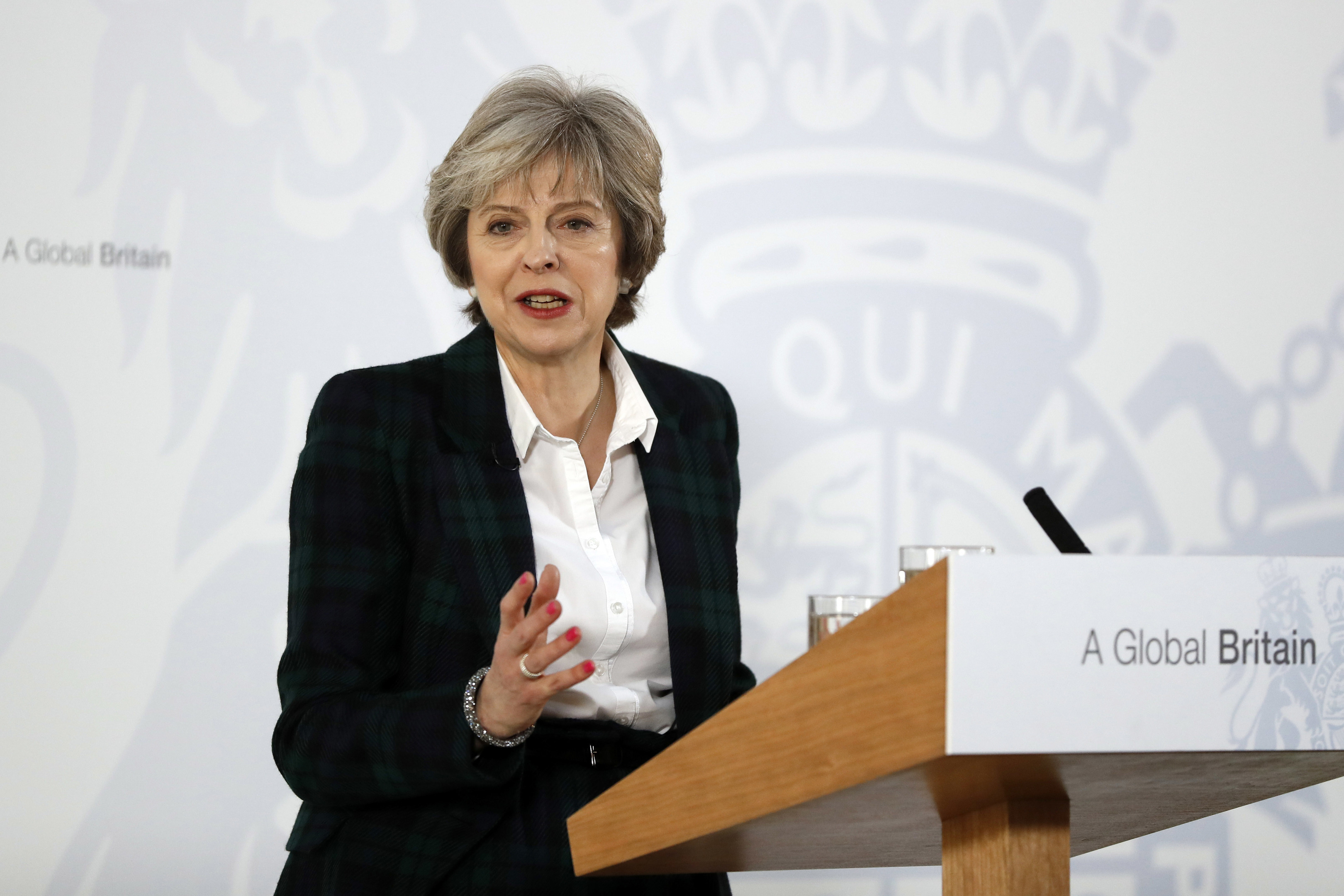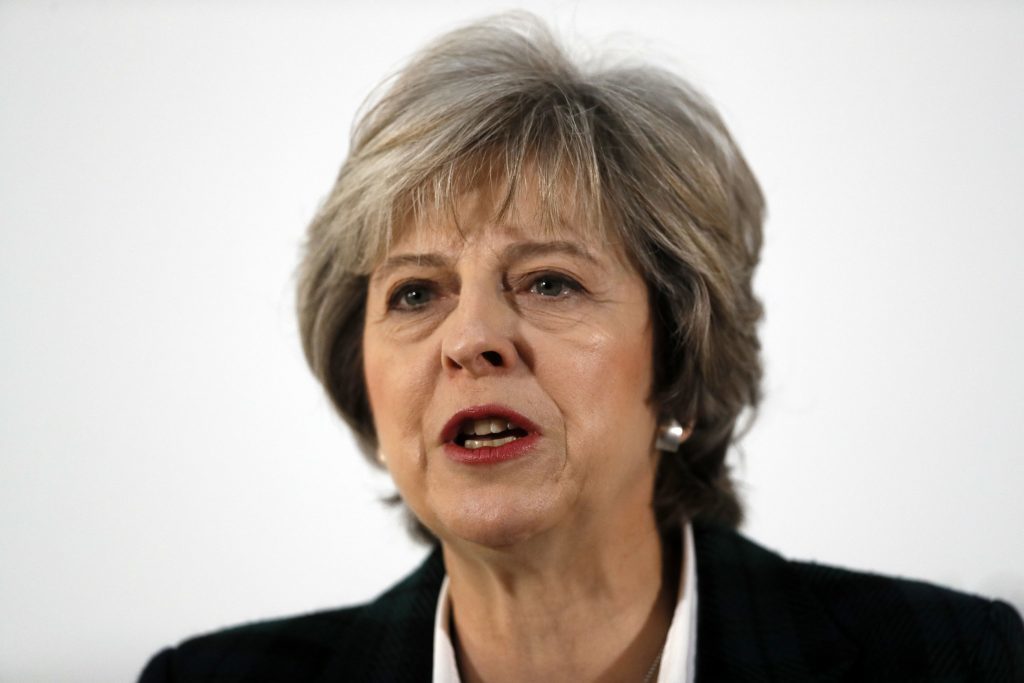
BRITAIN will leave the European single market when it quits the European Union, Theresa May has said.
Mrs May said that her plans for Brexit cannot allow continued membership of the single market, which would require free movement of people and accepting the jurisdiction of the European Court of Justice.
Instead, she said that she will seek “the greatest possible access to the single market on a reciprocal basis, through a comprehensive trade agreement”.
Mrs May said that she wanted to remain part of a customs agreement with the remaining 27 EU states, but said she had an “open mind” over whether this would be through associate membership of the Customs Union or through some other arrangement.
Her announcement came in a high-profile speech in London setting out her objectives for post-Brexit Britain.
She also revealed that the final Brexit deal reached between the UK and European Union will be put to a vote of both Houses of Parliament.
Mrs May did not make clear whether a vote against the agreement would result in the UK remaining in the EU or in Britain crashing out of the 28-nation bloc without a deal.
Speaking at Lancaster House, Mrs May said: “When it comes to Parliament, there is one … way in which I would like to provide certainty. I can confirm today that the Government will put the final deal that is agreed between the UK and the EU to a vote in both Houses of Parliament before it comes into force.”
Under Article 50 of the EU treaties, Britain will have two years to negotiate a deal after it informs the European Council of its intention to quit – something which Mrs May has said she will do by the end of March.
Chief EU negotiator Michel Barnier has suggested that an agreement must be concluded by October 2018 to allow time for ratification before Britain leaves in March 2019, meaning that the Commons and Lords votes are likely to come during that six-month period.
Final Brexit deal to be put to Parliament
The final Brexit deal reached between the UK and European Union will be put to a vote of both Houses of Parliament, Theresa May has announced.
In a high-profile speech in London setting out her objectives for post-Brexit Britain, the Prime Minister also said her plans cannot allow the UK to remain in the European single market.
The announcement about a parliamentary vote on the deal meets one of the key demands of MPs worried about the impact of EU withdrawal on the UK.
Mrs May did not make clear whether a vote against the agreement would result in the UK remaining in the EU or in Britain crashing out of the 28-nation bloc without a deal.
Speaking at Lancaster House, Mrs May: “When it comes to Parliament, there is one … way in which I would like to provide certainty. I can confirm today that the Government will put the final deal that is agreed between the UK and the EU to a vote in both Houses of Parliament before it comes into force.”
Under Article 50 of the EU treaties, Britain will have two years to negotiate a deal after it informs the European Council of its intention to quit – something which Mrs May has said she will do by the end of March.
Chief EU negotiator Michel Barnier has suggested that an agreement must be concluded by October 2018 to allow time for ratification before Britain leaves in March 2019, meaning that the Commons and Lords votes are likely to come during that six-month period.

Enjoy the convenience of having The Sunday Post delivered as a digital ePaper straight to your smartphone, tablet or computer.
Subscribe for only £5.49 a month and enjoy all the benefits of the printed paper as a digital replica.
Subscribe